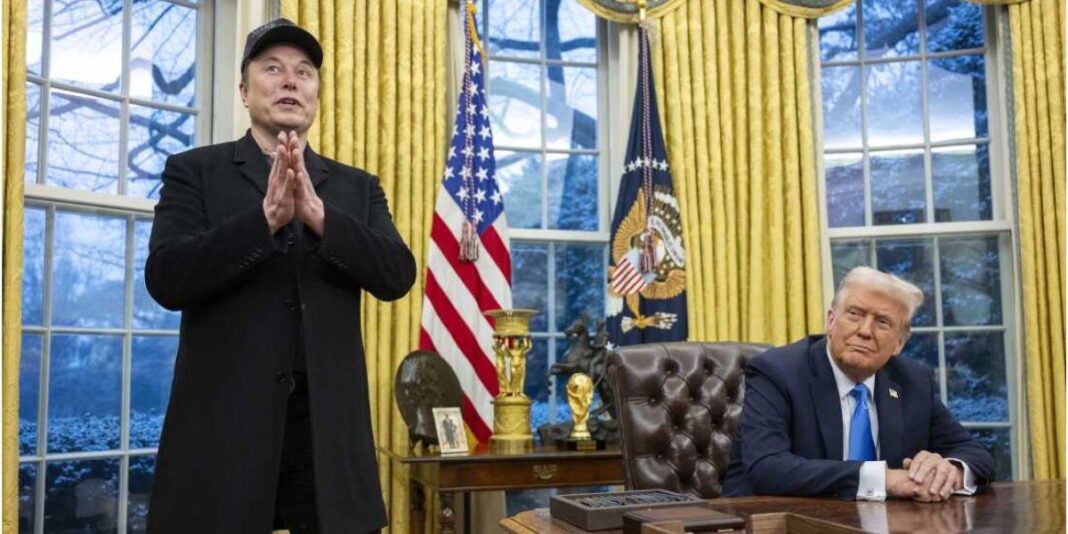Elon Musk has stepped down as the head of the Department of Government Efficiency (DOGE) under U.S. President Donald Trump’s administration, ending his tenure after just four months in office.
Confirming his resignation in a post on his social media platform X, Musk wrote, “As my scheduled time as a Special Government Employee comes to an end, I would like to thank President @realDonaldTrump for the opportunity to reduce wasteful spending. The @DOGE mission will only strengthen over time as it becomes a way of life throughout the government.”
According to the BBC, sources inside the White House said the off-boarding process began Wednesday night. While Musk’s exit was expected—federal law caps special employee service at 130 days per year—the timing raised eyebrows, coming just one day after Musk publicly criticized Trump’s new budget bill.


Speaking to CBS, Musk said the bill—featuring multi-trillion-dollar tax breaks and a dramatic rise in defense spending—undermined the very principles DOGE stood for. “I think a bill can be big or it can be beautiful. But I don’t know if it can be both,” he quipped.
Musk’s tenure was marked by internal clashes and growing controversy. He frequently butted heads with senior Trump officials, and DOGE’s aggressive cost-cutting led to the elimination or buyout of an estimated 260,000 jobs across the 2.3 million-strong federal workforce. Some of these firings were later overturned by court rulings, with judges citing unlawful dismissals.
One high-profile misstep involved the accidental termination of employees from the U.S. nuclear program, which critics said underscored the initiative’s recklessness.
Initially vowing to slash $2 trillion from the federal budget, Musk later scaled that goal down to $150 billion. As the scope of DOGE shrank, political tensions and public scrutiny intensified.


“DOGE is just becoming the whipping boy for everything,” Musk told the Washington Post in a Texas interview. “Something bad would happen anywhere, and we’d get blamed, even if we had nothing to do with it.”
His resignation also comes at a turbulent time for his business empire. Tesla recently reported a 13% drop in vehicle deliveries during Q1 2025—the sharpest decline in company history. Although its stock price has partially rebounded from a nearly 45% crash, it remains 10% below previous highs.
On a recent earnings call, Musk signaled a pivot back to his business ventures: “The time I allocate to DOGE will drop significantly. I will be allocating far more of my time to Tesla.”
Public backlash over his political role has spilled into real life. Protesters have targeted Tesla dealerships, vandalized EV charging stations, and damaged company vehicles. In response, U.S. Attorney General Pam Bondi warned that acts of vandalism would be prosecuted as domestic terrorism.

Despite the political fallout, Musk reaffirmed his commitment to Tesla. “I am committed to being the leader of Tesla for the next five years,” he stated at an economic forum in Doha, Qatar.
Musk has also vowed to pull back from political involvement, after reportedly spending close to $300 million supporting Trump and other Republican candidates during the 2024 election cycle.
While the future of DOGE remains uncertain, Musk insists that the initiative’s impact will outlast his time in Washington. “The mission endures,” he said, “even if I step away from the spotlight.”




